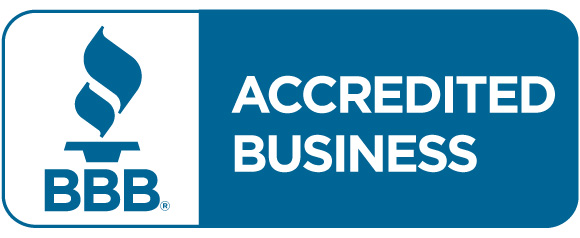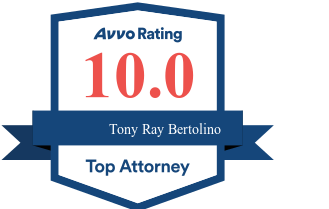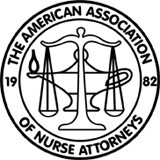
Trust our law firm to help protect your license
Texas chemical dependency counselors dedicate themselves to helping individuals struggling with drug and alcohol addiction. A complaint against your Licensed Chemical Dependency Counselor Program license can put your career and livelihood in jeopardy. That’s why if you receive a notice of a complaint, you should seek the legal help of an experienced Texas professional license defense lawyer.
When you are notified of a complaint against your Licensed Chemical Dependency Counselor Program license, it is important that you assert your rights. Contact an experienced chemical dependency counselor license defense lawyer at Bertolino LLP to figure out what your next steps should be.
Licensed Chemical Dependency Counselor Scope of Practice
Licensed chemical dependency counselors (LCDC) must be prepared to offer a variety of services that help individuals dealing with substance abuse or dependence and its impact on their lives. some of the rules and regulations LCDCs must adhere to include:
- The person receiving services must be the person dealing with substance abuse or dependency issues
- LCDCs are prohibited from using techniques that are beyond their professional experience or competence levels
- LCDCs are not allowed to diagnose substance of used disorders or conditions
It is important to note that licensed chemical dependency counselors are not qualified to treat individuals dealing with mental health conditions, nor are they qualified to provide family counseling to people dealing with any other type of medical issue or mental health condition that does not involve substance abuse or dependency.


Criminal History Evaluations
Under House Bill 963, the Texas Health and Human Services Commission (HHSC) can charge license applicants for criminal history evaluation letters. Criminal history evaluations are designed to review a potential licensee‘s criminal record to determine whether they should be approved for a professional license, including a chemical dependency counselor license.
A health professional’s prior conviction for a misdemeanor or felony offense or deferred adjudication could have an impact on your ability to obtain or renew your chemical dependency counselor’s license. If you have concerns that you may be ineligible for licensure or have your application for licensure renewal denied, it is important to discuss your legal options with a professional license defense attorney.
You may be able to take a competency exam or enter a preparatory educational program to address these issues and avoid the unnecessary costs and hardships that could render you ineligible for chemical dependency counselor license approval.
Click to contact our Texas Professional License Defense Lawyers today
Common Complaints Against Licensed Chemical Dependency Counselors
There are many different types of complaints that could be made against licensed chemical dependency counselors. However, some of the more common reasons given for these complaints include:
- Misleading LCDC services
- Providing false information regarding the services of LCDCs
- Deceptive LCDC advertising
- Breaches and confidentiality
- Failure to report information regarding abuse of a minor client
- Having inappropriate relationships with clients
- Difficulty setting boundaries with clients
- Having dual relationships
- Engaging and unprofessional conduct
- Engaging in criminal activity
- Being convicted of a criminal offense
- Failure to maintain accurate client records
- Insurance fraud
- Medicaid fraud
These are just a few of the more common reasons given for complaints against LCDCs. If there has been a complaint made against your license for another reason, be sure to contact our office to discuss your options going forward.
Complete a Case Evaluation form now
How Long do Clients Have to File Complaints?
According to Texas law, a client has up to five years after terminating a professional relationship to file a complaint against a licensed human services professional. If the client is a minor, the amount of time allowed is extended.
What Is the Texas Health and Human Services Commission?
The Texas Health and Human Services Commission (HHSC) is responsible for regulating the licensure of licensed chemical dependency counselor programs, LCDC continuing education providers, counselor interns, and clinical training institutions.
The Regulatory Services Division is responsible for regulating LCDCs in Texas. Some of the top responsibilities the HHSC handles include:
- Verifying LCDC credentials
- Denying licenses
- Revoking licenses
- Suspending licenses
- Issuing LCDC licenses
- Renewing LCDC licenses
- Ensuring applicants are qualified
- Investigate complaints made against LCDCs
What to Expect from the Investigation Process
Following a complaint, the Complaints Management and Investigative Section of HHSC will determine whether or not the complaint is valid. The process may be followed by an investigation, in which you will have the option of responding to the allegations brought against you. The HHSC will take your statement, and any evidence gathered from the investigation into account, which they may use to dismiss the complaint.
However, the HHSC could proceed through the investigatory process, which may require an informal conference, a remedial plan, or an administrative hearing. The HHSC’s final decision can be appealed at the Travis County district court level. You may have the opportunity to present evidence and summon witnesses to support your case.
Texas Occupations Code §504.103 states that the department keeps records of:
- The date of the complaint
- Name of complainant
- The complaint subject matter
- Each person contacted in relation to the complaint
- A summary of results stemming from the investigation
- An explanation for the action taken or not taken by the department
The department will then keep an information file of the complaint, and depending on the disposition of the complaint, the department will notify all parties involved.
What Happens When the HHSC Receives Complaints Against a Licensed Chemical Dependency Counselor?
The Professional Licensing Compliance is responsible for the investigation and evaluation of complaints made against an individual’s license by HHSC. HSSC will then review these complaints to determine whether they have jurisdiction, whether the allegations are valid, and whether there are any violations of state or federal statutes as described in the complaint.
Complainants must file two forms – (1) Form 3223, Licensed Chemical Dependency Counselor, Counselor Intern and Council on Sex Offender Treatment Complaint, and (2) Form 2076, Authorization to Release Medical Information – with their complaint form. HHSC will then notify the complaining and the LCDC that a complaint has been made. If HHSC determines allegations are valid or violations have been made, they will notify both parties accordingly.
Although HHSC complaints made against LCDCs can be filed anonymously, these types of complaints are more difficult for HHSC to investigate. For this reason, many anonymous complaints are closed due to a lack of sufficient evidence.
What Is the HCR Substance Use Disorder Compliance Unit?
The HHSC’s Health Care Regulation Department is responsible for the licensure and regulation of Licensed Chemical Dependency Counselors and Licensed Sex Offender Treatment Providers (LSOTPs). The HCR‘s licensing unit is responsible for receiving and processing LCDC license applications, evaluating the credentials of applicants, and issuing licenses to LCDCs and LSOTPs.
The HCR’s substance use disorder compliance unit will be responsible for investigating complaints of substance abuse against LCDCs and LSOTPs. Should these individuals be found in non-compliance with professional codes of conduct, state laws, or other regulations, investigative findings can be sent to the Regulatory Services Division’s Enforcement Department.
Consequences Licensed Chemical Dependency Counselors Face
If the HHSC finds the complaint made against you credible, you could be faced with serious penalties, including a formal reprimand. Additionally, your Chemical Dependency Counselor Program license could be suspended or revoked. You may be ordered to surrender your LCDC license, face probation or suspension at work, and be faced with administrative penalties.
The disciplinary actions taken against your license can also be published online by HHSC for up to seven years. This includes individuals who may have gone on to get their licenses reinstated and are currently practicing under the letter of the law.
However, since enforcement actions are readily available for years to come, it is critical that you seek the legal advocacy of an attorney who understands the chemical dependency counselor’s license defense process.
Get Help Defending Your Chemical Dependency Counselor’s License
Our law firm will stand up for you when complaints have been made against your chemical dependency counselor’s license. Our firm isn’t afraid to go up against the HHSC to protect your reputation and license.
The chemical dependency counselor’s license defense attorneys at Bertolino LLP have the experience to help licensed Chemical Dependency Counselors navigate through the complaint process. We will work to protect your license and career every stop of the way. Contact us today to schedule a no-obligation consultation.
Call or text (512) 476-5757 or complete a Case Evaluation form














